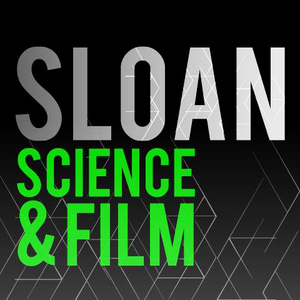News
Sloan Foundation Fellowships encourage M.F.A. students to write about real science
By Noela Hueso
 After reading a Newsweek article about xenon gas, Bo Yoon (Amber) Ha, a third-year graduate filmmaking student at the UCLA School of Theater, Film and Television (UCLA TFT), became fascinated with how it is currently being used as an anesthetic in humans and might just become an effective method for treating individuals suffering from PTSD in the near future.
After reading a Newsweek article about xenon gas, Bo Yoon (Amber) Ha, a third-year graduate filmmaking student at the UCLA School of Theater, Film and Television (UCLA TFT), became fascinated with how it is currently being used as an anesthetic in humans and might just become an effective method for treating individuals suffering from PTSD in the near future.
“Basically, it targets the brain in a way so that when you remember something, it reduces the fear around a memory,” she says. “It doesn't erase the memory but it reduces the fear around it.”
Drawing on her undergraduate education as a human rights and comparative ethnic studies major at Columbia University, as well as time spent in Uganda, Ha wrote a screenplay that juxtaposes the xenon gas treatment of a former Ugandan civil war rebel fighter suffering from PTSD against the backdrop of a love story. Last year, Lamara earned her a $30,000 Alfred P. Sloan Foundation Fellowship in Film Production and next summer she will travel to Africa to begin filming.
Alfred P. Sloan Foundation Fellowships promote science fact in film and television — rewarding scripts that demonstrate examples of real science as well as plausible science in its themes — and every year for more than a decade, winning student projects emanating from the UCLA TFT's Department of Film Television and Digital Media (FTVDM) have been funded by a film production grant ($30,000) and two screenwriting grants ($15,000 each, up from $10,000 in 2017); new this year is an additional $15,000 earmarked for the writing of a winning script for television.
The Sloan Foundation distributes its grants every three years and supports the writing and production efforts of students at other universities in addition to UCLA, including USC, NYU and AFI; UCLA, however, is the only public university to receive such funding. Starting with the 2018 cycle, it will collect a total of $361,648, which will be divided into three academic years and used for not only the student awards but for the administration of the grants; for the grant information website, which lists criteria, deadlines, former winners, etc.; and for celebratory announcements in the trades.
Approximately 50 UCLA TFT graduate students apply for the fellowships each year. From that number, UCLA TFT faculty cull 20 semi-finalists who are paired with science mentors, from UCLA and elsewhere, to ensure — and, prior to the final judging round, attest to — the scientific accuracy of the student scripts. (Ha’s mentors were the actual Harvard University scientists working on the revolutionary new use for xenon gas, Dr. Edward Meloni and Dr. Marc Kaufman.)
Also new this year is a dedicated Advanced Screenplay Workshop, specifically for Sloan screenwriting semi-finalists, taught by Jim Uhls (Fight Club). “The Advanced Screenplay Workshop is designed to maximize students’ ability to write the most competitive screenplays for this award,” says FTVDM Chair Kathleen McHugh. Students who are applying for the television writing grant have the option of enrolling in FTVDM classes 283B or 284B, in which students polish their stories for the small screen.
The first step for current M.F.A. students (with a minimum 3.0 GPA) who are interested in applying for a Sloan grant is to attend the annual Sloan Colloquium, a mandatory program that outlines not only the application and decision-making processes but the science resources available on campus as well. The next colloquium, for the 2019-20 awards cycle, takes place on Sunday, Nov. 4 from 10 a.m.-12 p.m. in UCLA TFT’s Freud Playhouse. The colloquium, which will be followed by lunch, is timed with the UCLA Science Fair taking place on South Campus and students attending the colloquium will have the opportunity to visit booths to be inspired and make connections.
What does a winning script look like? UCLA TFT Professor Phyllis Nagy, one of the Sloan Fellowships faculty advisors, says the judges, including entertainment industry professionals such as producer Lyna Obst (Interstellar, Contact), look for “overall excellence in writing — that would include character development, structure, plotting, metaphor, [and] integrating the science in a way that is organic to the dramatic arc of the script.”
Amber Ha’s Lamara met that criteria. But for her, applying for the Sloan was more than just trying to win the coveted grant. It was also “an opportunity to explore themes that I would not be brave enough to do on my own,” she says.
Posted: October 11, 2018





